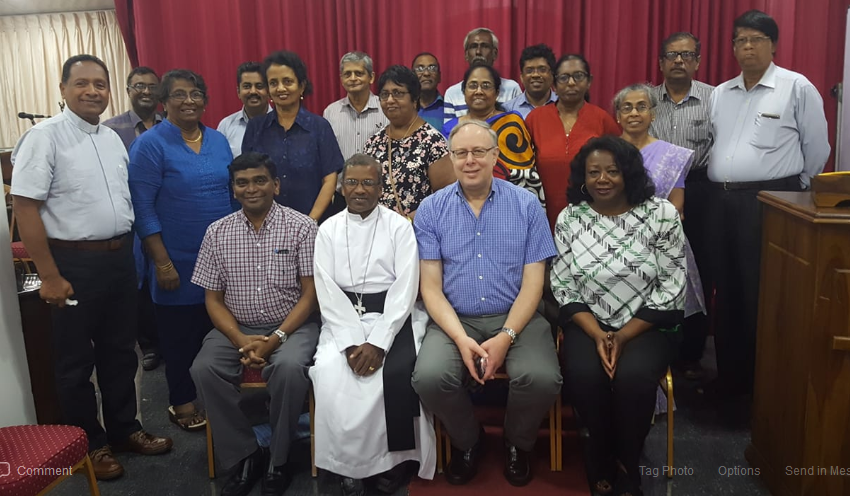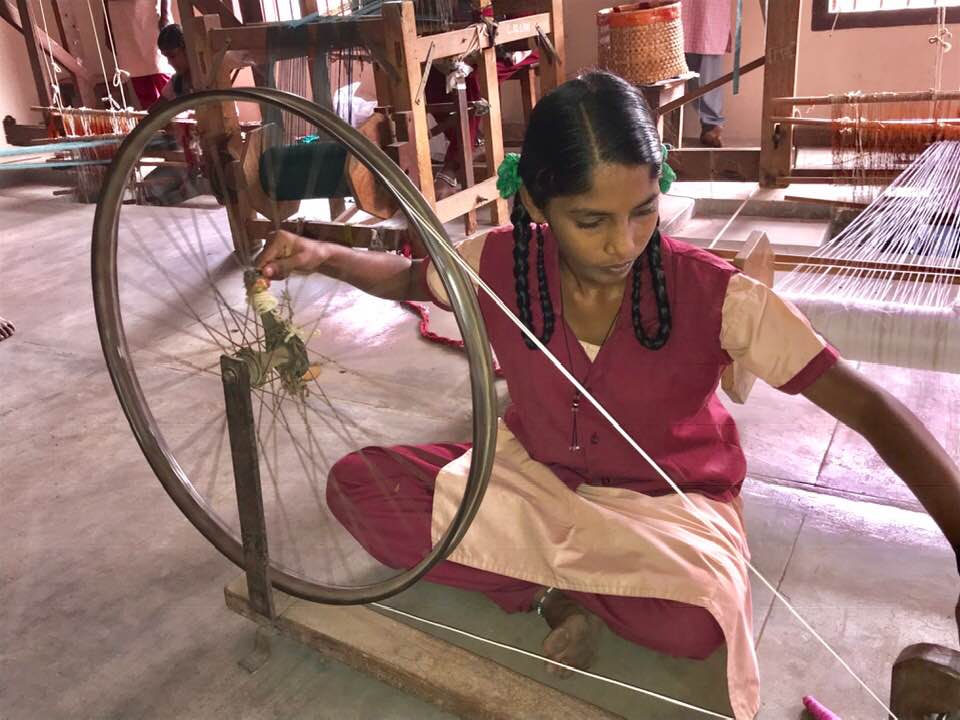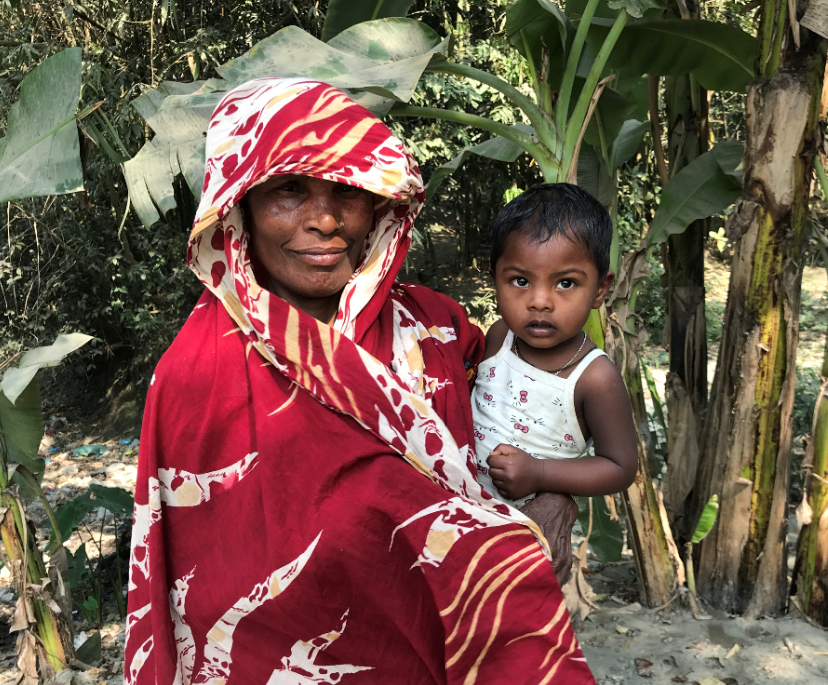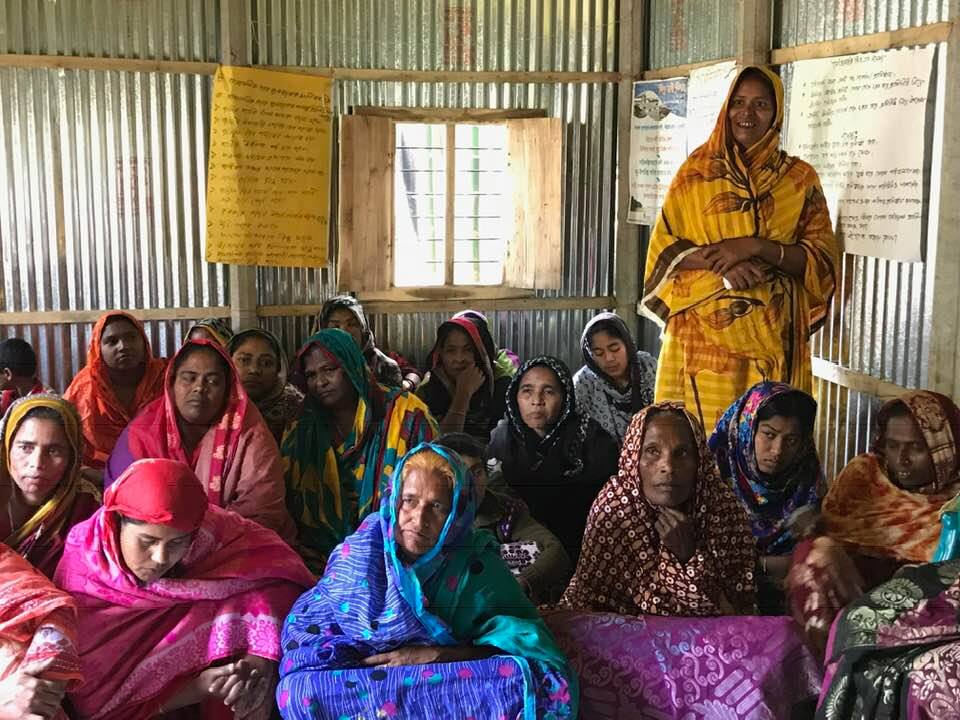Global Ministries lays the groundwork for Southern Asia Initiative
 The rights and the opportunities for women and girls proved to be a prominent theme during a two week trip to Southern Asia for three Global Ministries executives from the United Church of Christ and the Christian Church (Disciples of Christ). The group, laying the groundwork for Global Ministries’ upcoming Southern Asia initiative, visited key partners in three countries, January 13-29.
The rights and the opportunities for women and girls proved to be a prominent theme during a two week trip to Southern Asia for three Global Ministries executives from the United Church of Christ and the Christian Church (Disciples of Christ). The group, laying the groundwork for Global Ministries’ upcoming Southern Asia initiative, visited key partners in three countries, January 13-29.
Co-Executives of Global Ministries, the Rev. Jim Moos, UCC associate general minister, Global Engagement & Operations, and the Rev. Julia Brown Karimu, president of the DOC Division of Overseas Ministries, were joined by the Rev. Deenabandhu Manchala, area executive for Southern Asia, on a tour through Sri Lanka, India and Bangladesh.
“We are doing preliminary work with our partners for the Southern Asia Initiative that will launch at the UCC General Synod and Disciples’ General Assembly,” Moos said of the 18-month initiative. “Projects, justice advocacy, People to People pilgrimages, worship and educational materials will all be included in the initiative.”
“We are trying to see how best we can bring them aboard,” Manchala said. “Our partners can be great sources for people who want to learn more about Southern Asia. The majority of our partners are working to lift up the marginalized, primarily women and children. The dominant patriarchal culture denies opportunities to women and girls.”
 The Global Ministries executives began their trip with four days in Sri Lanka, meeting with the leadership of the Church of American Ceylon Mission (CACM) and the National Council of Churches Sri Lanka. They visited a vocational training center for young people, and group homes for boys and girls.
The Global Ministries executives began their trip with four days in Sri Lanka, meeting with the leadership of the Church of American Ceylon Mission (CACM) and the National Council of Churches Sri Lanka. They visited a vocational training center for young people, and group homes for boys and girls.
The journey continued through six days in India, with worship and conversation, first with representatives of the Church of South India, followed by a visit in Madurai at the famous Kamakshi temple. Brown Karimu, Moos and Manchala also visited the American College, Lady Doak College and the Tamilnadu Theological Seminary in Madurai. In Kolkata, the group toured a home supported by Global Ministries that cares for children affected by HIV/AIDS, run by the Church of North India.
During two days in Bangladesh, the executives visited social development programs, worshiped with the National Council of Churches Bangladesh, and met with The Christian Commission of Development in Bangladesh.
“I was somewhat overwhelmed by the vastness and rich diversity of the Southern Asia region,” Brown Karimu said. “I was moved by the witness of Christian communities as they witness in countries where the Christian population is less than 3%. Also, I was moved by the work of The Christian Commission of Development in Bangladesh, which provides technical support in the development of micro-credit projects for marginalized women and men.”
 Manchala noted that Global Ministries has two types of partnerships in Southern Asia – traditional, historical partnerships, like with the Church of South India, that are dealing with the institutional responses to the issues facing women and girls – education and opportunity in the workplace. The more recent partnerships Global Ministries has forged in Southern Asia have emerged around important social justice issues of human trafficking and religious freedom. Newer partnerships in Sri Lanka and Bangladesh deal with contemporary needs and challenges – human rights, religious harmony and environmental concerns.
Manchala noted that Global Ministries has two types of partnerships in Southern Asia – traditional, historical partnerships, like with the Church of South India, that are dealing with the institutional responses to the issues facing women and girls – education and opportunity in the workplace. The more recent partnerships Global Ministries has forged in Southern Asia have emerged around important social justice issues of human trafficking and religious freedom. Newer partnerships in Sri Lanka and Bangladesh deal with contemporary needs and challenges – human rights, religious harmony and environmental concerns.
“We met with women in Bangladesh who were organized into self-directed groups through the assistance of our Global Ministries partners as part of a comprehensive approach against poverty,” Moos said. The women learn community organizing, their legal rights, and how to start small businesses. “In the process, the women are empowered and become leaders in their families and communities.”
Christians are a small minority in all three countries, with Buddhists dominant in Sri Lanka, Hindus in India, and Muslims in Bangladesh. Christians are often threatened communities, Manchala said, with the rise of religious nationalism.
“We want to help them keep hope alive,” he said, “under very challenging circumstances.”
Just showing up is often the best aid allies can offer, Moos emphasized. “I had the sense in Bangladesh that there is a great feeling of isolation in the Christian churches. Our partners there told us ‘it is your presence with us that makes a difference.’ We are the only outside Christian church presence they have.”
“It isn’t easy or popular to be a Christian in Bangladesh, India or Sri Lanka,” Brown Karimu said. “Yet the church continues to nurture and train pastors, as well as respond to the challenges of ministry and to gather as a faith community.“
Related News
A Prophetic Call for Justice and Peace in Palestine
The executive leaders of the United Church of Christ have issued the following statement...
Read More‘Love is Greater Than Fear’: Regional Youth Events get to the heart of gospel message
United Church of Christ teens attending this summer’s Regional Youth Events (RYE) are...
Read MoreUCC desk calendars available to order now
Prepare for your day, month and year with the United Church of Christ desk calendar —...
Read More


